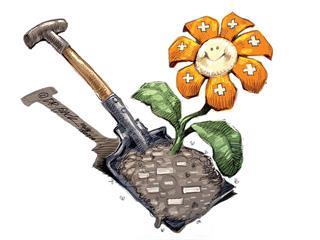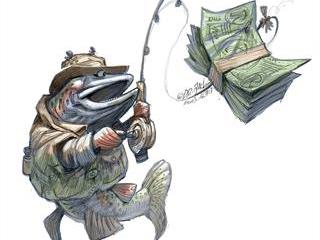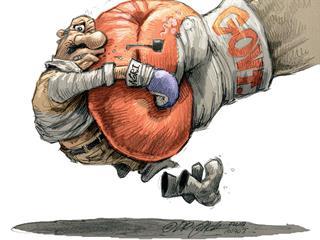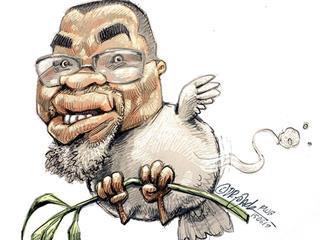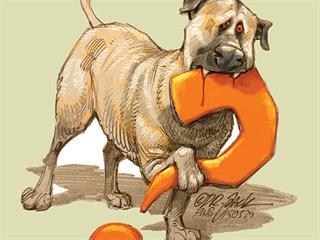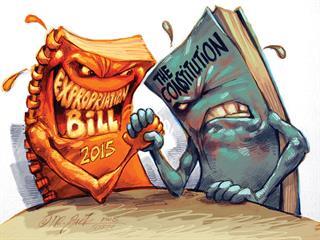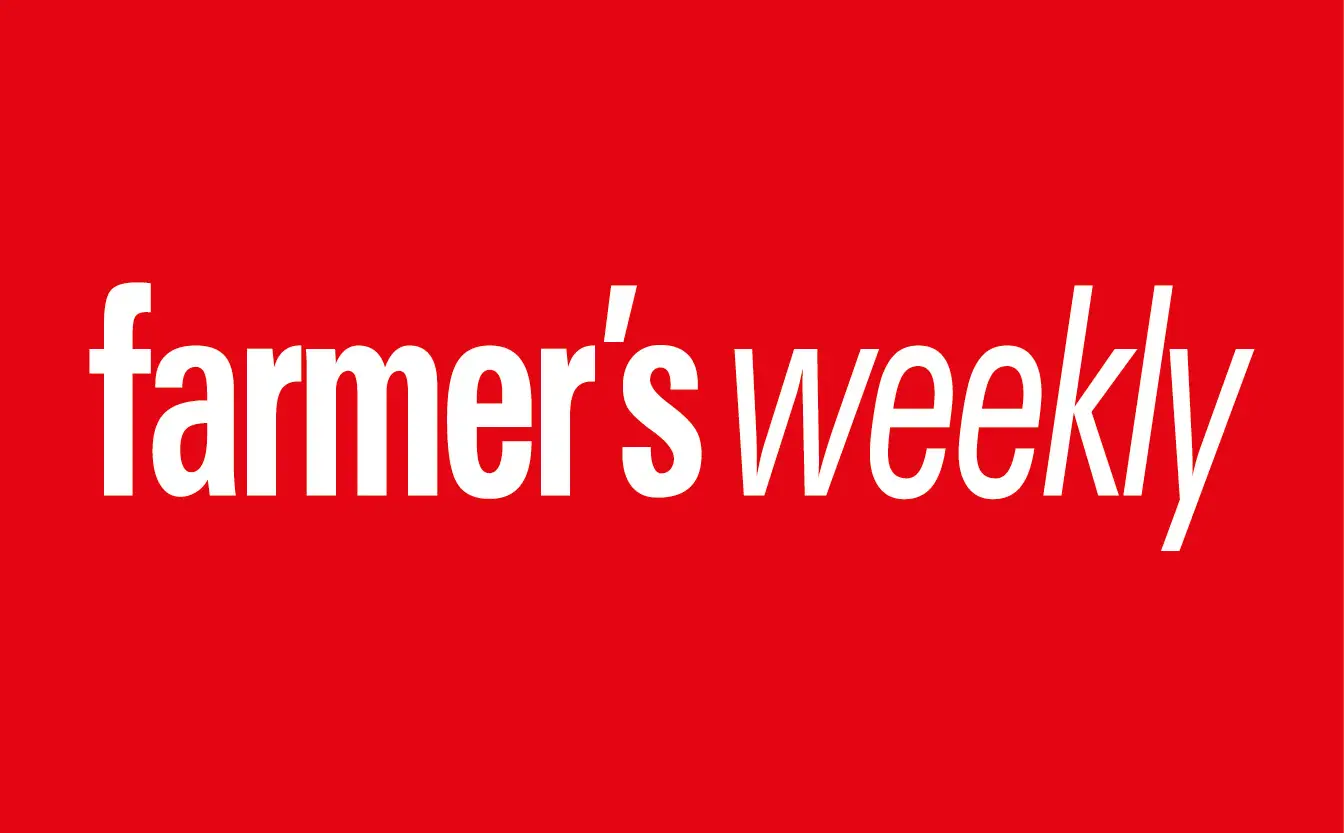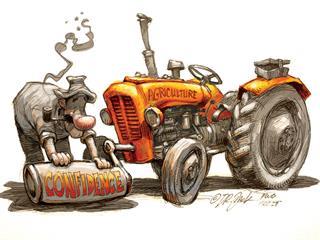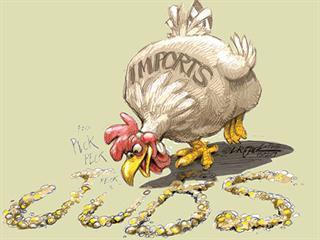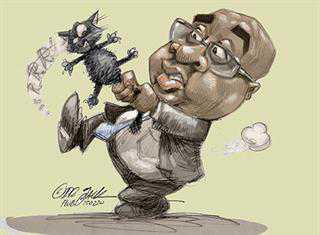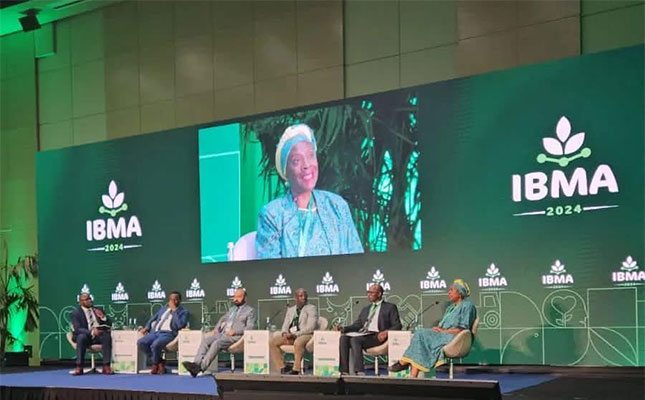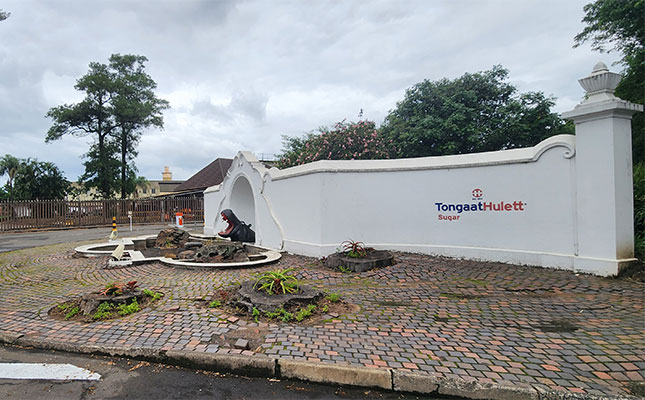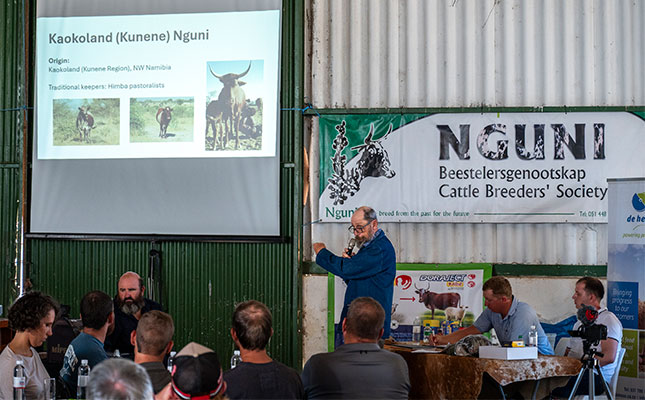Our strengths, our problems and our future
SA has economic opportunities, but tough challenges. For farmers, positives are a sizeable domestic market and top local suppliers, says Wessel Lemmer, senior agricultural economist at Absa.
Sustaining the SA trout industry
South Africa’s trout industry has a meaningful socioeconomic role to play in the country’s
future, says llan Lax, chairperson of the Federation of SA Flyfishers.
Land reform – let’s stay out of the boxing ring
SA’s land reform debacle could destroy everything achieved since 1994, warns communications expert Prof David Venter. He was speaking at the recent Hortgro Science Symposium held near Franschhoek.
‘We need experienced positive people’ – Gwede Mantashe
Speaking on strategy to Eastern Cape farmers, ANC secretary-general Gwede Mantashe stressed that white commercial farmers were the key to successful transformation. Moreover, rational and positive debate was needed to ensure that everyone benefited.
Uniting for growth – government and farmers
KZN MEC for Agriculture and Rural Development Cyril Xaba recently addressed farmers at the KZN Poultry Institute in Pietermaritzburg, sharing his strategy of forming partnerships in the sector.
Agri schools: time to reassess
Government wants to see more small-scale farmers undergoing formal education in agriculture. For this to work, a new kind of agri school is needed, says educational consultant Dr Willem Burger.
Land reform: time to take the initiative
How will producers and agribusiness be affected if the agriculture sector cannot come up with a plan for land reform? In no way must food security be put at risk, says Agbiz CEO John Purchase.
Transforming agriculture: where is the magic?
Concern has often been expressed over the government’s perceived reluctance to give the National Development Plan its full commitment. Professor Mohammed Karaan, Dean of the Faculty of AgriSciences at the University of Stellenbosch, offers his views on how to make the NDP come alive.
How ‘predator-friendly’ are Anatolian guard dogs?
A number of stock farmers have been using Anatolian guard dogs to deter predators rather than kill them. The results are mixed. The decision of Woolworths to sell predator-friendly lamb has raised the issue yet again. Human wildlife conflict manager Thys de Wet takes a closer look at guard dogs.
Smallholder ‘cluster farmers’
Smaller farmers struggle to sustainably produce large quantities of quality crops and get them to market. The ‘cluster farming’ concept is changing that, says Diale Mokgojwa of Standard Bank.
The ongoing battle for sustainable land reform in SA
Government’s many land reform policies and legislation may be intimidating for South Africa’s commercial farmers, but organised agriculture is striving to ensure that these are developed and implemented fairly. Sandy la Marque, CEO of the KwaZulu-Natal Agricultural Union, explains.
Energy-saving efficiency
Grain farm operating expenses have increased steadily over the past decade, with the high costs of inputs, especially electricity, becoming one of the most serious challenges facing farmers. But the sector has great potential for efficiency improvements, says Andrew Etzinger, senior general manager at Eskom’s Integrated Demand Management department.
Selling out our green heritage
South Africa needs a new champion to nurture the bond between people and planet, and fight off corporate greed, says writer and researcher Glenn Ashton.
Walk like an African
Africa is brimming with business opportunities, says African specialist Victor Kgomoeswana. He set out some of these, with advice on doing business on the continent, to agribusiness leaders at Standard Bank’s agribusiness lunch in Durban recently.
Getting to grips with glyphosate
Glyphosate has its supporters and detractors. Dr Charlie Reinhardt examines the science behind the world’s most widely used herbicide.
Revised bill remains unlawful
The revised Expropriation Bill, like its earlier versions, allows the State to seize property without a prior court order. This is unconstitutional, says Dr Anthea Jeffery of the Institute for Race Relations.
Why conservation agriculture must be promoted in SA
In contrast to other parts of the world, like the Americas, the use of conservation agriculture methods in South Africa is still relatively limited. It is vital that this situation be remedied urgently, says Richard Findlay of the KZN No-Till Club.
Guided by economic realities
After so many false starts, we have surely learned enough lessons about land reform to start making the right decisions, says Roelof Bezuidenhout.
Imported products are cheap, but far from cheerful
Buying imported products because they are cheaper than locally produced products makes economic sense, right? Kevin Lovell, CEO of the SA Poultry Association, explains why it doesn’t.
There’s little space to swing the fiscal cat…
SA’s low growth expectations, crumbling infrastructure and increasing social burden means that minister Nhlanhla Nene must take some brave decisions, says Agbiz economist Lindie Stroebel.
- ADVERTISEMENT -
- ADVERTISEMENT -
MUST READS
- ADVERTISEMENT -

